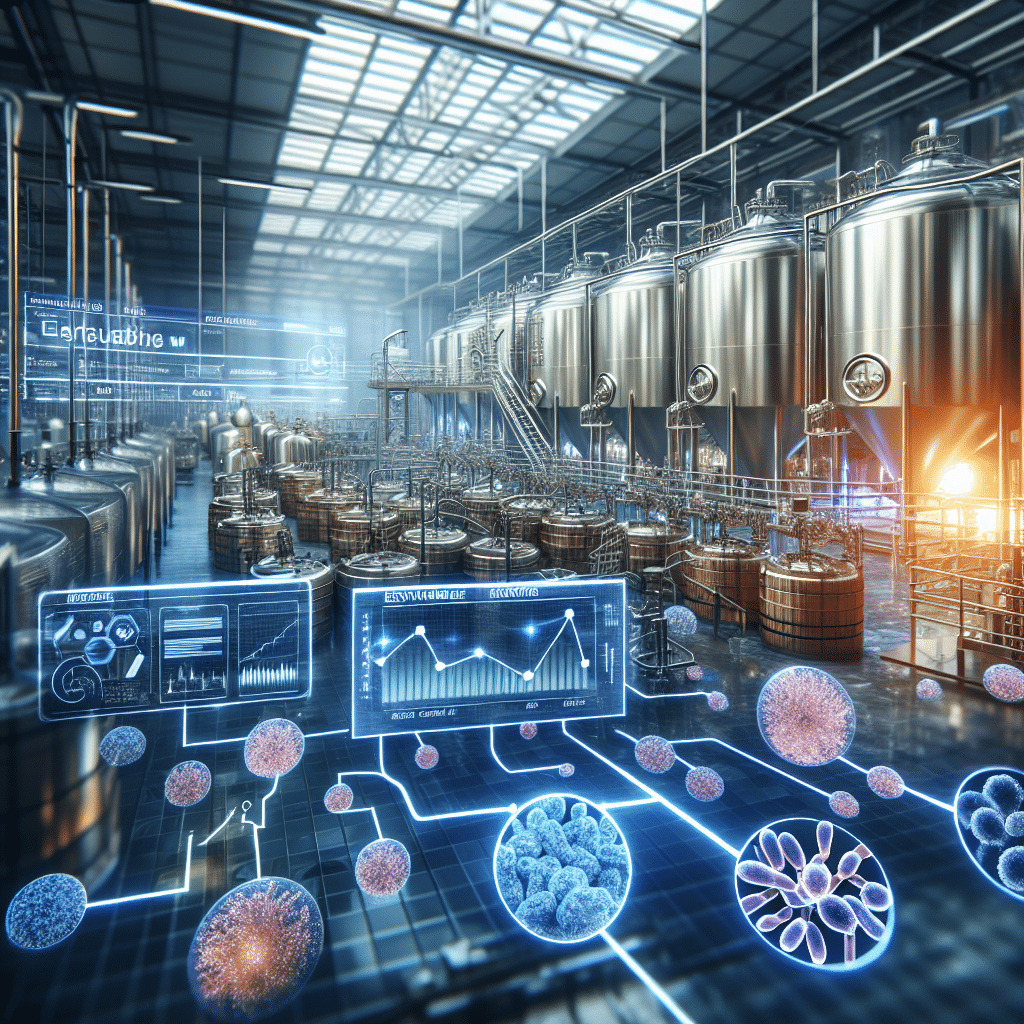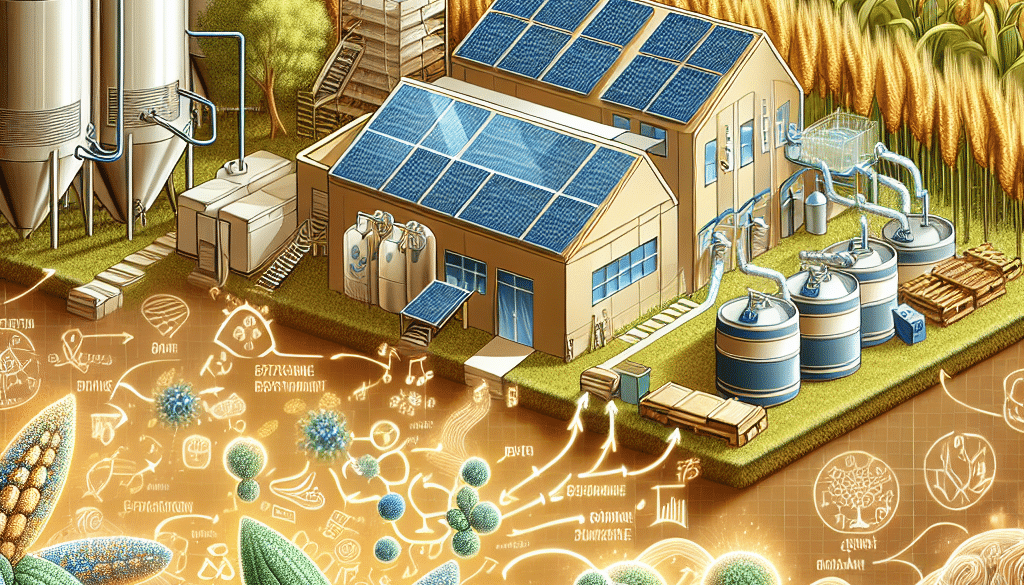Enzymes, Process Updates Drive Sustainable Brewing
-
Table of Contents
- Enzymes and Process Innovations Propel Sustainable Brewing Practices
- The Role of Enzymes in Sustainable Brewing
- Advancements in Brewing Processes
- Case Studies: Breweries Leading the Way
- Statistics Highlighting the Impact
- Conclusion: The Future of Brewing is Green
- ETChem’s Protein Products for Sustainable Brewing
Enzymes and Process Innovations Propel Sustainable Brewing Practices

The brewing industry has long been a staple of global culture, providing a wide array of beverages enjoyed by millions. However, the traditional brewing process is resource-intensive, involving significant water, energy, and raw material usage. In recent years, there has been a growing emphasis on sustainability within the industry, with breweries of all sizes seeking to minimize their environmental footprint. A key driver of this transformation has been the adoption of innovative enzymes and process updates that enhance efficiency and reduce waste.
The Role of Enzymes in Sustainable Brewing
Enzymes are biological catalysts that speed up chemical reactions. In brewing, they play a crucial role in breaking down starches into fermentable sugars, a process essential for alcohol production. The use of specialized enzymes can streamline this process, leading to several environmental benefits:
- Energy Reduction: Enzymes can operate at lower temperatures, reducing the energy required for heating.
- Water Conservation: Improved efficiency in the brewing process can lead to reduced water usage.
- Waste Minimization: Enzymes help extract more sugars from grains, decreasing the amount of spent grain waste.
By incorporating these biocatalysts, breweries can achieve a more sustainable operation while maintaining the quality and flavor profiles that consumers expect.
Advancements in Brewing Processes
Beyond enzymes, breweries are also adopting new technologies and processes to further their sustainability goals. These include:
- Water Reclamation: Advanced treatment systems allow breweries to recycle water for multiple uses.
- Energy Recovery: Heat exchange systems capture and reuse energy from brewing operations.
- Raw Material Optimization: Precision agriculture and sourcing strategies ensure the efficient use of hops, barley, and other ingredients.
These process updates not only contribute to a greener planet but also often result in cost savings for the breweries, creating a win-win scenario for business and the environment.
Case Studies: Breweries Leading the Way
Several breweries have already made headlines with their sustainable practices. For example:
- New Belgium Brewing: This Colorado-based brewery has implemented a comprehensive water treatment facility and is a leader in energy efficiency.
- Siemens Brauhaus: Siemens’ showcase brewery in Germany utilizes a digital twin to optimize its processes, saving energy and reducing emissions.
- Toast Ale: A UK brewery that brews its beer from surplus bread, demonstrating a novel approach to waste reduction.
These examples illustrate the potential for sustainable brewing to not only reduce environmental impact but also to innovate and inspire within the industry.
Statistics Highlighting the Impact
The numbers speak volumes about the importance of sustainable brewing practices:
- It is estimated that traditional brewing processes can use up to 7 liters of water for every liter of beer produced.
- Energy consumption in breweries accounts for up to 5% of the total production costs.
- Adopting energy-efficient practices can reduce greenhouse gas emissions by up to 65% in small breweries.
These statistics underscore the significant environmental and economic benefits that can be achieved through sustainable brewing initiatives.
Conclusion: The Future of Brewing is Green
The brewing industry is at a pivotal point where sustainability is no longer just a trend but a necessity. The integration of enzymes and innovative processes into brewing operations is proving to be a successful strategy for reducing environmental impact while maintaining product quality. As more breweries adopt these practices, the industry as a whole moves closer to a more sustainable and responsible future.
ETChem’s Protein Products for Sustainable Brewing
In line with the sustainable brewing movement, ETChem’s protein products offer an excellent opportunity for breweries to enhance their processes. Their high-quality collagens can be used in various applications, including beverage fortification and product development. By choosing ETChem’s sustainable protein solutions, breweries can further their commitment to environmental responsibility while exploring new product offerings.
About ETChem:
ETChem, a reputable Chinese Collagen factory manufacturer and supplier, is renowned for producing, stocking, exporting, and delivering the highest quality collagens. They include marine collagen, fish collagen, bovine collagen, chicken collagen, type I collagen, type II collagen and type III collagen etc. Their offerings, characterized by a neutral taste, instant solubility attributes, cater to a diverse range of industries. They serve nutraceutical, pharmaceutical, cosmeceutical, veterinary, as well as food and beverage finished product distributors, traders, and manufacturers across Europe, USA, Canada, Australia, Thailand, Japan, Korea, Brazil, and Chile, among others.
ETChem specialization includes exporting and delivering tailor-made collagen powder and finished collagen nutritional supplements. Their extensive product range covers sectors like Food and Beverage, Sports Nutrition, Weight Management, Dietary Supplements, Health and Wellness Products, ensuring comprehensive solutions to meet all your protein needs.
As a trusted company by leading global food and beverage brands and Fortune 500 companies, ETChem reinforces China’s reputation in the global arena. For more information or to sample their products, please contact them and email karen(at)et-chem.com today.




